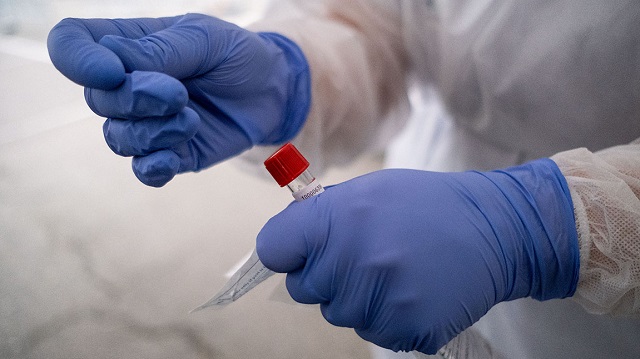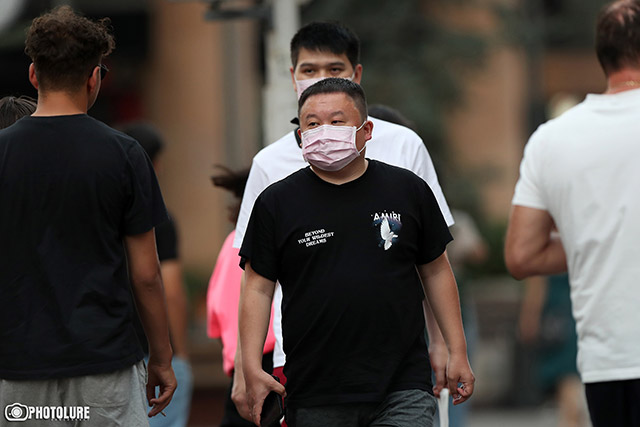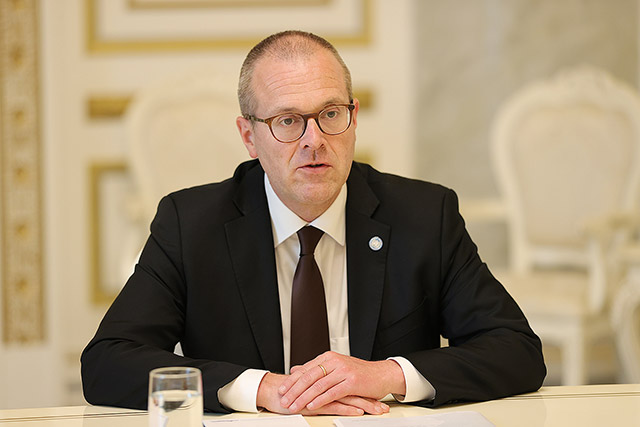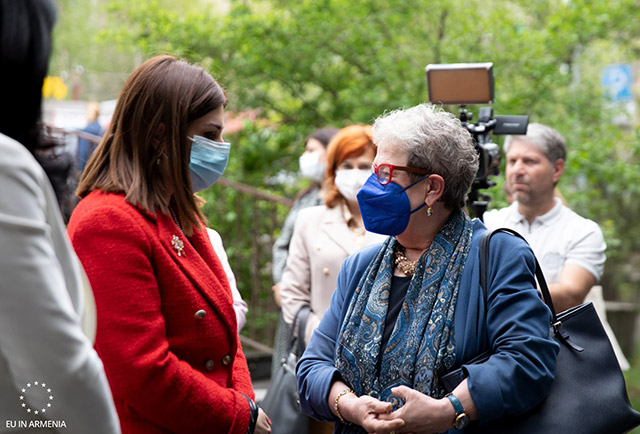Statement by Hans Kluge, WHO Regional Director for Europe
Press briefing, 20 May, 2021
Good morning, good afternoon,
COVID-19 cases and deaths are declining. Weekly cases in Europe have gone down from a plateau of 1.7 million during mid-April to just close to 685,000 new cases last week. This is a 60% decrease in a month.
Read also
This progress is fragile. We have been here before. Let us not make the same mistakes that were made this time last year, that resulted in a resurgence of COVID-19 and saw our health systems, communities and economies once again, bear the full force of this pandemic.
We learned our lesson the hard way. We are heading in the right direction but need to keep a watchful eye on a virus that has claimed the lives of nearly 1.2 million people in this Region. That is the equivalent to the population of Brussels in Belgium.
In several countries, there are pockets of increasing transmission that could quickly evolve into dangerous resurgences. Last week, case incidence remained high in eight countries in the Region, at over 150 new cases per 100,000. The pandemic is not over yet.
In coming months, increased mobility, physical interactions and gatherings may lead to more transmission in Europe. If social measures are eased, as most countries across the Region are currently doing – the efforts on testing and sequencing, isolation, contact tracing, quarantine and vaccination need to be redoubled to stay in control and ensure that trends remain on a downward course.
As several countries in our Region are currently scaling up testing for citizens to access cultural, social and entertainment venues, we must remember that there is no such thing as zero risk. Alongside this, only 23% of people in the Region have had a single dose of vaccine, while 11% have completed their vaccine series. We still have some distance to cover before those eligible in the Region receive their vaccine doses.
Neither testing nor receiving vaccines, is a substitute for adherence to measures such as physical distancing and mask wearing in public spaces or healthcare settings.
Most of us are still susceptible to the virus and not vaccinated yet. Right now, in the face of a continued threat and new uncertainty, we need to continue to exercise caution, and rethink or avoid international travel. Vaccines may be a light at the end of the tunnel – but we cannot be blinded by that light.
The new variant of concern: B.1.617, first identified in India, has now been identified in at least 26 countries out of 53 in the WHO European Region, from Austria, to Greece, Israel to Kyrgyzstan. Most cases have a link to international travel, but onwards transmission is occurring. We are still learning about the new variant, but it is able to spread rapidly and displace the B.1.1.7 lineage that has become the dominant lineage in Europe.
Allow me to emphasize.
That all COVID-19 virus variants can be controlled in the same way. With public health and social measures.
And that all COVID-19 virus variants that have emerged so far, do respond to the available, approved vaccines.
Last week, we convened health ministers from all 53 member states, to take stock of vaccination uptake and strategize in order to extend the benefits of available vaccines to more people in the Region.
Vaccination uptake among those older than 80 in our Region, is now 75%. Prioritizing older adults for vaccination, including those in long-term care facilities, is bearing fruit. The public health impact is clear. Whilst new cases began to decrease across all ages from mid-April, rates have fallen quickest in the oldest age-groups. Those over 80 are now the least represented in new cases across the Region, having been the most represented at the beginning of 2021.
The data speaks for itself. Weekly incidence among those older than 80 years in the Region, fell from 27.4 cases per 10,000 in mid-December 2020 to 6.2 in the first week of May 2021. In the same age group over the same period, weekly mortality fell from 4.6 per 10,000 to 0.9. Such is the value of vaccines. Every time an individual is vaccinated, every time you choose to wear a mask and keep your distance, we make a major advance against a virus that will continue to reap rewards if we lower the guard.
However,
Let there be no doubt,
thanks to your efforts we remain on track to assign this pandemic to history.
Thank you.
–
CLOSING REMARKS
On behalf of WHO, I would like to express our sincere condolences to the victims, and the families of the victims, the injured, and all people affected by the conflict in Israel and Palestine. There is never a right moment for a conflict, but this happens as the world is fighting a global virus, a powerful virus, and when health systems are already stretched beyond capacity, and the protection of health facilities and health workers is very important. It is also essential that the urgent humanitarian needs of those affected by the conflict are met immediately, and that life-saving referrals of patients, and timely health care must be unhindered. The topic will be discussed and is on the agenda of the World Health Assembly next week, beginning on 24th of May. Thank you.
WHO/Europe Press





























































